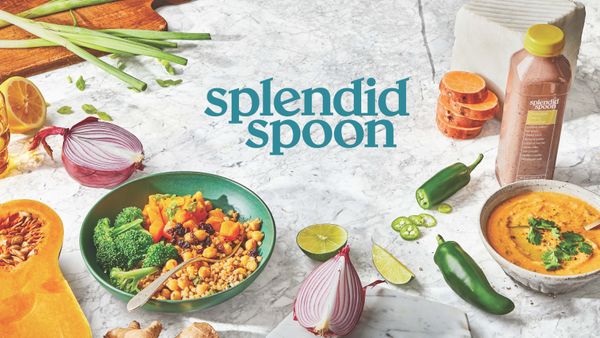Some see this as a bit of a myth, but many vegans don’t get the right vitamins and minerals needed for a balanced diet. This can lead to other people asking why vegans look sick?
The answer is in the diet, and it should be stated that numerous vegans do not look sick – most do not. We’re going to take a closer look at why this might be and how healthy the vegan diet is.
Sometimes, vegans can have an anemic look, but not all vegans are lacking protein. However, it can be hard to replace the full nutritional value of meat and it can show in some people.
Studies have shown that some vegans are not as healthy as meat-eaters. When nutritional gaps are not filled, some plant-based diets do not provide enough nutrition to fight off illness.
Is a vegan diet unhealthy?
While there are numerous good points to a plant-based diet such as a lower risk of heart disease, diabetes, and others – studies have shown that vegans may be at a higher risk of fractures and even hemorrhagic stroke.
Much like some meat-eaters look unwell, some vegans do not look a picture of health. Vegan diets can be very different. This means some will be highly nutritious and full of fresh vegetables, fruit, healthy fats, and protein. However, some may consume higher levels of saturated fats which can lead to different health issues.
Dairy and meat substitutes are often high in saturated fats; including vegan cheese, vegan sausages, and plant-based butter. These are vegan staples for many, and the high amount of coconut and palm oils found in these products can be problematic.
A vegan diet can also be unhealthy because of the lack of essential vitamins and nutrients like vitamin B12. This is why you will find fortified cereals and other vegan-friendly products. Supplements are an important source of nutrition for vegans with the likes of vitamin B12, vitamin D, and iron being high on the list for plugging nutritional gaps.
Why is a raw vegan unhealthy?
A raw vegan diet could be low in vitamin B12, calcium, selenium, zinc, and vitamin D to name a few. Without supplements, it is difficult to get these into a vegan diet as most are found in dairy and meat products.
A raw vegan diet may also be unhealthy because of a lack of protein and not enough calories. This can lead to health issues including a compromised immune system, weak bones, depression, and even tooth decay.
What are unhealthy vegan foods?
Unhealthy vegan foods include meat substitutes, vegan cheese, plant-based desserts, coconut yogurt, vegan chips,
Meat substitutes
These products include no meat sausages or chicken nuggets that are often high in sodium. Check how much each product has as anything of 400 mg and above is a lot and should be avoided. These products are also high in artificial ingredients and preservatives. Anything with too many preservatives is less likely to have a good source of protein or other vitamins such as vitamin B12 that vegans need.
Vegan cheese
Another vegan food that is highly processed and often with little nutritional value to offer, plant-based cheese isn’t the healthy alternative it is sometimes made out to be. Still, they are free from growth hormones and carcinogenic animal proteins so there are benefits to non-dairy cheese.
Plant-based desserts
Vegans avoid butter, but when it is removed from a traditional dessert such as a mousse or cheesecake, the likes of starches and gums are added to replicate the texture. These are often high in sugar and calories and should be avoided.
Coconut yogurt
As a milk alternative, coconut yogurt has a similar mouthfeel, and texture but hardly any protein and plenty of saturated fats. Cashew-based vegan yogurt is a better alternative as it has more protein.
Vegan chips
These are marketed as a healthy alternative to regular chips but they are still fried and covered in salt. It is better to make them at home in an oven using a little olive oil and a pinch of salt to save calories and sodium.
Is vegan protein unhealthy?
Vegan protein can be unhealthy but it depends on the type in question. Many vegan proteins are healthier than meat because they contain more nutrients and fewer calories.
Plant protein powder, for example, often contains more nutrients but may lack essential amino acids. Meat tends to contain the amino acids required to make protein as well as B-vitamins which are often lacking in a plant-based diet.
Meat is higher in saturated fat which can cause a spike in cholesterol levels. Seitan is a popular meat alternative because it mocks the texture and mouthfeel of meat. Made from wheat gluten, it contains around 25 grams of protein per 100 grams and contains selenium and a bit of iron. However, Seitan also contains a lot of sugar and salt and is often crammed with other ingredients most health-conscious people would avoid.
Tofu Is made from soybeans and is a whole source of protein meaning they give the body all the essential amino acids it requires for good health. It is a staple food in a lot of meat-free Asian cuisine and will often find its way onto a vegan plate.
Lentils and beans are popular in plant-based diets and not only are they high in protein, but they provide plenty of fiber. One cup of lentils contains more than the recommended daily intake of fiber.
So, much like protein sourced from meat and dairy, not all vegan protein is unhealthy, but it is important to get the right types into your diet.
Is it unhealthy for a child to be vegan?
Vegan diets can be healthy for children as long as they get balanced, nutritious meals throughout the day. Parents should know about nutrition to ensure they enjoy healthy development and growth. This could require professional guidance to ensure they are getting the nutrition they need from a varied, healthy source.
Thankfully, there are supplements for children that can help to fill nutritional gaps such as vitamin B12 and vitamin D.



